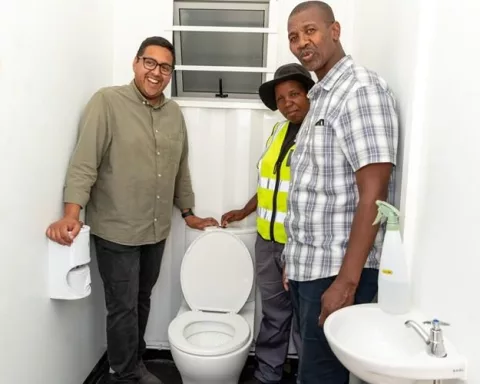Municipal services in several communities in Cape Town, including Browns Farm, Philippi East, Nyanga, and Samora Machel, have been suspended due to the ongoing taxi strike. The threat of violence has resulted in the closure of schools and clinics, leaving many people stranded and anxious to get home. The strike has disrupted transportation and led to some healthcare workers refusing to see patients.
Violence and Reduced Services
On Friday morning, incidents of violence were reported, including the shooting of a bus driver, burning of vehicles, and protests involving the setting of tires alight. In Philippi, many people stayed home to avoid potential violence, while others found alternative means of transportation. The reduced staff at the Inzamezabantu and Crossroads community health centers only allowed patients with chronic conditions to be seen.
Impact on Education and Local Businesses
The strike has also affected school attendance, with many students unable to attend classes. Several schools, such as Sinethemba Senior Secondary, Intsebenziswano Senior Secondary, Sophumelela High in Philippi, and Zisukhanyo High in Samora Machel, were impacted. To avoid potential violent flare-ups, some primary schools sent students home earlier than usual. Local businesses, particularly those near transportation hubs, have witnessed significantly lower foot traffic and sales.
Infrastructure Damage and Incitement of Violence
The Browns Farm library and other city facilities in volatile areas have remained closed due to concerns about vandalism and attacks on infrastructure. The City of Cape Town and provincial government are currently gathering evidence of damage to infrastructure and incitement of violence. The strike has left thousands of people stranded, with alternative public transportation services coming under attack.
Enforcement of Law and Safe Passage for Commuters
The City’s law enforcement plans to maintain a high visibility presence in hotspot areas, working closely with South African Police Service (SAPS) to monitor and respond to incidents. To ensure safe passage for commuters, escorts of bus services will continue. The City’s statement said law enforcement vehicles were escorting buses and vehicles on volatile routes, while monitoring MyCiTi bus routes and Dial-a-Ride services. The most affected routes were those from the Civic Centre to Mitchells Plain, Khayelitsha, Atlantis, Dunoon, Killarney, Milnerton, and Joe Slovo.
Impact on Eskom
Eskom, the South African electricity public utility, has also been affected, with a company vehicle petrol bombed in Khayelitsha and services suspended in various areas. The utility plans to exercise extreme caution when delivering services to other supply areas.
The Need for a Resolution
The ongoing situation in Cape Town highlights the difficulties faced by residents and the need for a resolution to the taxi strike. Commuters have been asked to rely on social media and apps for updates on bus services.











